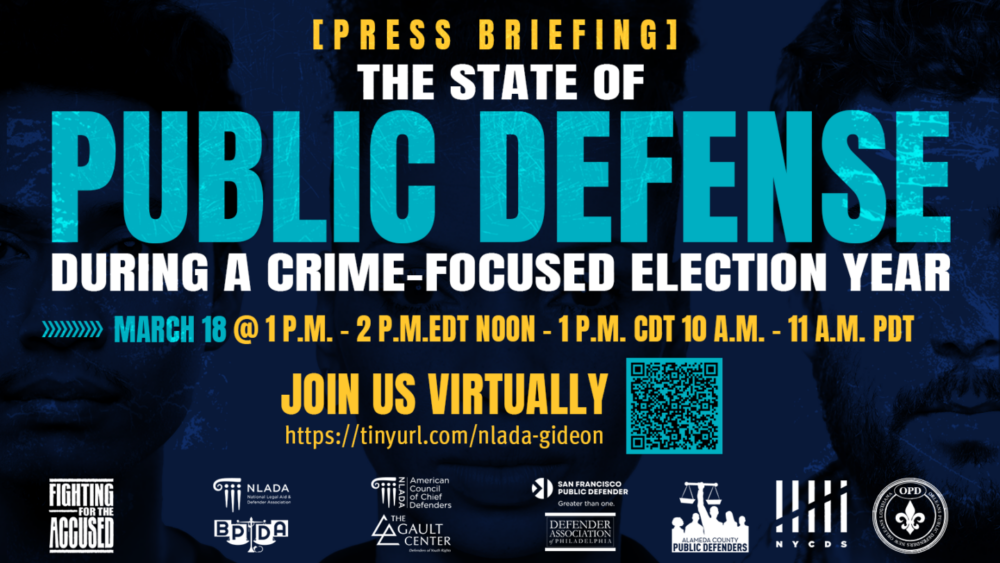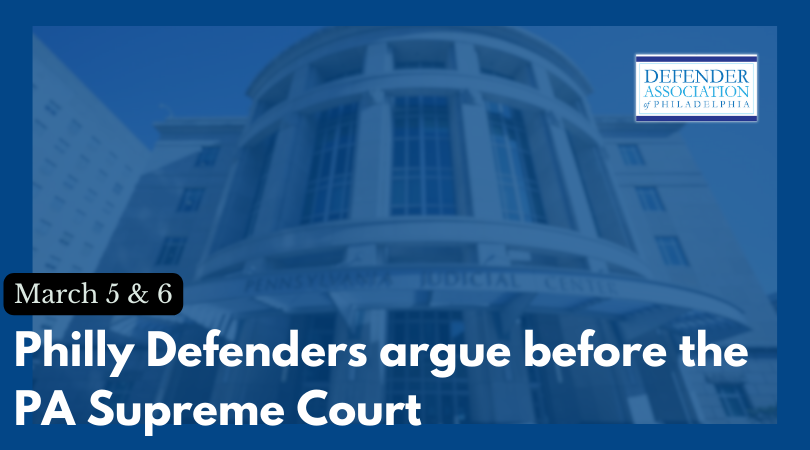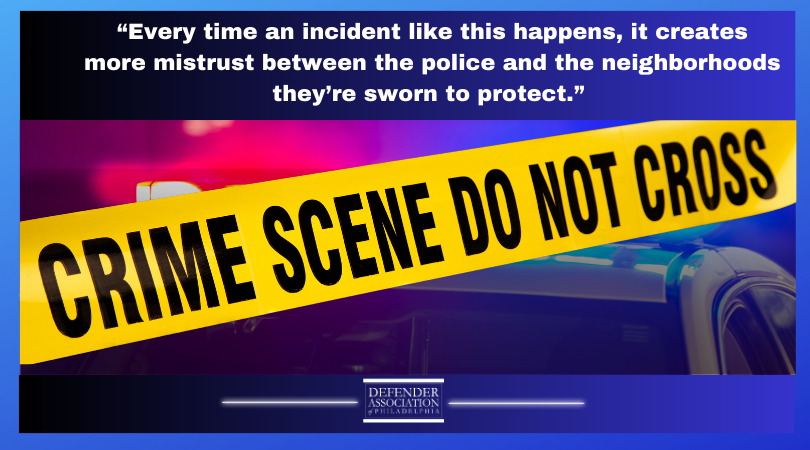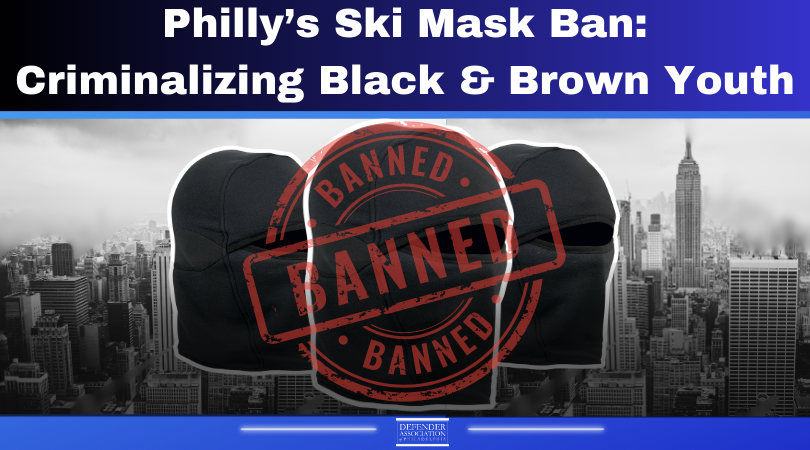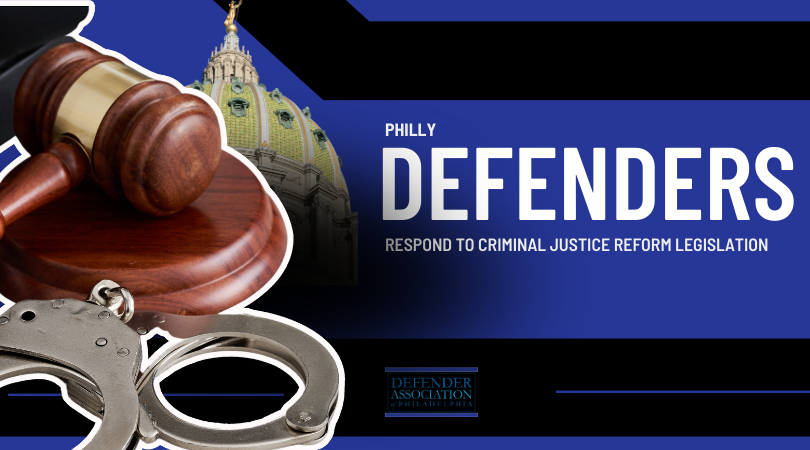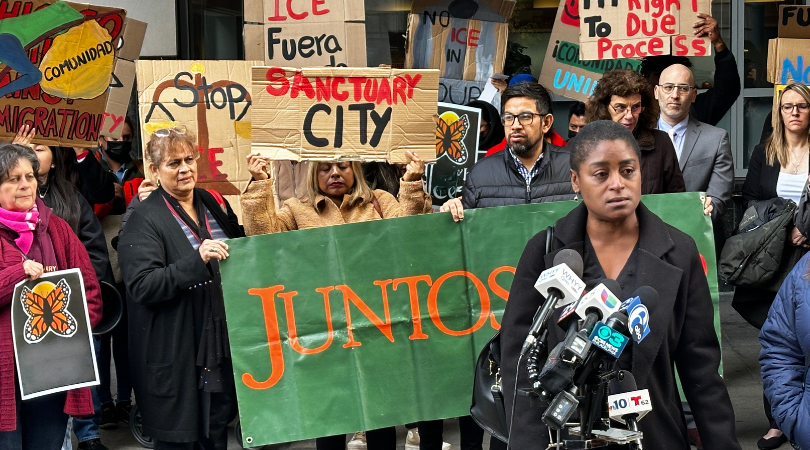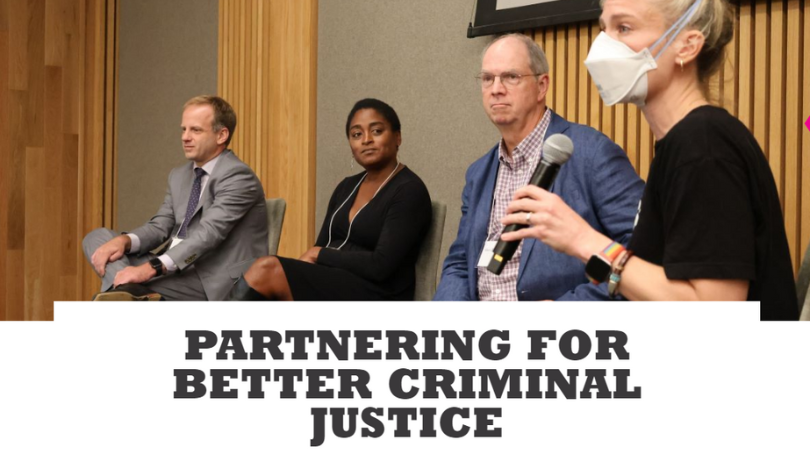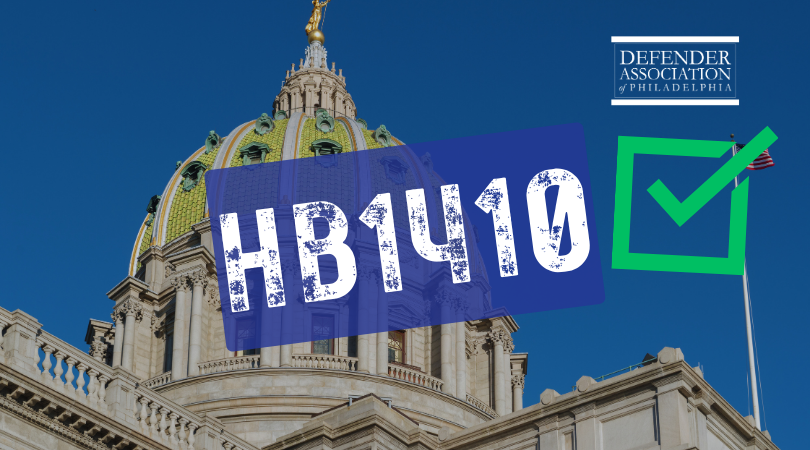FOR IMMEDIATE RELEASE: March 18, 2024
PRESS CONTACT: Rabiah Alicia Burks, r.burks@nlada.org, (202) 452-0620
Public Defense Chiefs Push Back on Misleading Crime Narratives that Are Driving Policy This Election Year
Speaking at Gideon Day press briefing, chiefs encourage reporters to speak to public defenders for better-informed stories, and discuss ways public defenders promote community safety.
WASHINGTON — Chief public defenders from across the country gathered today for a discussion on the state of public defense during a crime-focused election year. Co-sponsored by the National Legal Aid and Defender Association (NLADA), the panel discussion commemorated Gideon Day, the anniversary of the U.S. Supreme Court’s unanimous decision in Gideon v. Wainwright, which recognizes the constitutional right to public defense for people who cannot afford counsel. A recording of the event can be found here, and a fact sheet/resource guide for reporters is available here.
“Public defender offices across the country are wholly under-resourced, while prosecutors and law enforcement are funded at several times the rate, and this funding discrepancy leads to greater disparities and injustices within the legal system,” said April Frazier Camara, president and CEO of NLADA. “Misleading narratives on crime and safety are fueling these policy decisions. Public defenders are joining forces to fight back against these fear-based tactics and to combat these practices.”
The discussion was moderated by Civil Rights Corps Founder Alec Karakatsanis, a civil rights lawyer and former public defender who has written extensively about “copaganda,” or the manipulation of media by police and prosecutors.
“Public defenders are dedicated to safe communities, and their voices should not go unheard in the national conversation about crime and community safety,” said Karakatsanis. “The extraordinary focus by the media on low-level-crimes reported by police has the effect of manipulating what all of us think and feel are the most urgent problems in our society. It distracts us from the greatest dangers that we face and obscures safety solutions right in front of our eyes. Public defenders can be an invaluable counterbalance to that.”
“Providing indigent individuals with fierce representation in court itself fosters safer communities—by guarding against wrongful convictions and by advocating against incarceration, which is incredibly destabilizing for families and communities,” said San Francisco elected Public Defender Mano Raju. “Our office also provides services that address the root causes of interactions with the criminal system, such as our MAGIC youth programs, our College Pathway Project, which helps formerly incarcerated people go to college and our End the Cycle program, which connects newly arrested people to services.”
Many reporters accept without question the information and crime statistics that police and prosecutors give them, and in turn, their stories are used to bolster policy decisions that benefit law enforcement and drive incarceration. Journalists do a disservice to their readers when their stories are more about feelings than facts, according to the panel.
“We have seen this play out in New York State, where the Governor has rolled back our historic bail reform law on multiple occasions,” said New York County Defender Services Executive Director Stan Germán. “Politicians have succumbed to a fear-mongering campaign launched by proponents of mass incarceration rather than focus on the data analysis which clearly demonstrated the success of a bail law that reduced the racial and wealth disparities in our criminal legal system.”
Funding is an ongoing struggle for public defender offices in large cities as well as rural areas, despite the fact that basic fairness should dictate that prosecutors and defenders receive equal funding.
“In most states, funding for DAs is two to one compared to public defenders, dollar for dollar,” said Alameda County Chief Defender Brendon Woods. “That’s not a fair fight. Another significant factor is the work police departments do in support of the prosecution, essentially providing a free investigatory wing to every prosecutor’s office in the state. If you fund systems that incarcerate people, more incarceration will result. And incarceration drains public resources away from solutions that address the root causes of crime like housing, jobs, and education.”
“One of our biggest challenges is retaining experienced attorneys, who often leave public defense for better-paying jobs in other sectors. If we had pay parity with other legal offices, we’d be able to keep more veteran lawyers, which means better representation to our clients,” said Defender Association of Philadelphia Chief Defender Keisha Hudson. “I think public defenders have tremendous value to the media because we have the insight and data to share the full story of our clients—not just as suspects, but as full human beings.”
“In rural communities, recruitment is challenging due to vast legal deserts. A shortage of lawyers makes workloads for existing public defenders extremely high,” said Iowa State Public Defender Jeff Wright. “We have difficulty competing with the salaries prosecutors and other legal professions are able to offer.”
With greater funding parity, public defender offices are better able to engage in community outreach and to expand programs that prevent people from being funneled into the system in the first place, said Orleans Public Defenders Director of Community Outreach and Lead Organizer Robert Jones.
“Our clients are the community, so we need to be part of that,” said Jones, who is formerly incarcerated. “Community members need to see PDs everywhere. Our office partners with community organizations to assist people when they are in the criminal legal system, and moreover to keep them from having contact with the system.”
This press briefing was sponsored by the NLADA, the American Council of Chief Defenders, the Black Public Defender Association, the Gault Center, San Francisco Public Defender’s Office, Defender Association of Philadelphia, the Alameda County Public Defender’s Office, Orleans Public Defender’s Office, and New York County Defender Services. This event is part of NLADA’s ongoing initiative, “Fighting for the AccUSed: The Public Defender Campaign for Safe, Secure Communities.” The Fighting for the AccUSed campaign is changing perceptions about public defenders in communities and the press. It also seeks to build public support for the passage of the federal EQUAL Defense Act (HR 3758) and the Quality Defense Act (S.850), and urges the Biden Administration to support other federal, state, and local efforts to fund public defense.
Public defenders are integral parts of the communities they serve and include social workers, investigators, community engagement professionals, and lawyers. Nationwide, about 80 percent of individuals who are accused of crimes in the legal system are represented by a public defender.
The National Legal Aid & Defender Association (NLADA), founded in 1911, is America’s oldest and largest nonprofit association devoted to excellence in the delivery of legal services to those who cannot afford counsel. NLADA has pioneered access to justice at the national, state and local levels, playing a leadership role in the creation of public defender systems and other important institutions from The Sentencing Project to the Legal Services Corporation. A leader in the development of national standards for civil legal aid and public defense, NLADA also provides advocacy, training, and technical assistance for equal justice advocates across the country.
###
